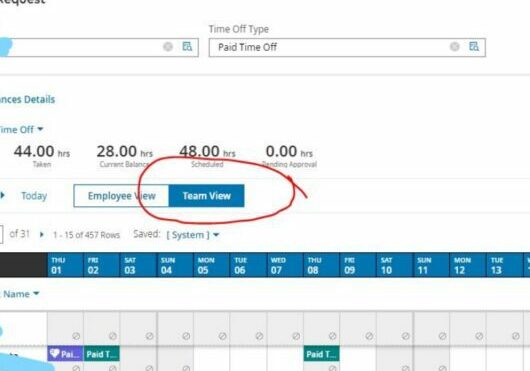What Is Unlimited PTO and Should I Implement It?
by Paul Devlin
Unlimited PTO is a flexible time-off policy that places no cap on the number of vacation or personal days an employee can take. This contrasts sharply with traditional PTO policies, which typically allocate a fixed number of days per year based on tenure or job level. While traditional PTO encourages employees to plan their absences annually, unlimited PTO offers greater autonomy and trust in managing one’s own time.
Advantages of Unlimited PTO
1. Improved Employee Well-being and Work-Life Balance
- Flexibility: Employees can take time off when they need it most, whether for personal health, family emergencies, or simply to recharge.
- Reduced Burnout: Regular breaks can prevent burnout, leading to better mental and physical health.
2. Enhanced Company Culture
- Trust and Autonomy: Offering unlimited PTO signals trust in employees, fostering a culture of autonomy and responsibility.
- Attracting Talent: This modern benefit can be a powerful tool for attracting top talent, particularly millennials and Gen Z who value flexibility.
3. Increased Productivity
- Quality Over Quantity: Employees may be more productive when they know they can take time off without the fear of losing accrued days.
- Focus on Results: Shifting focus from hours worked to results achieved can lead to higher efficiency and creativity.
4. Simplification of Administration
- Streamlined Processes: HR departments spend less time tracking accrued time off, reducing administrative overhead.
- No Payouts: There’s no need to pay out unused vacation days, potentially saving the company money.
Disadvantages of Unlimited PTO
1. Potential for Abuse or Inequity
- Overuse: Some employees might take advantage of the policy, leading to potential abuse.
- Underuse: Conversely, some employees might feel guilty about taking time off, ultimately taking fewer days off than they would under a traditional system.
2. Ambiguity and Inconsistency
- Lack of Guidelines: Without clear guidelines, employees may be unsure about how much time off is acceptable, leading to inconsistency.
- Managerial Bias: Unlimited PTO requires managers to exercise discretion, which can lead to perceived or real biases.
3. Impact on Team Dynamics
- Workload Imbalance: Frequent absences can disrupt team dynamics and place undue burden on remaining team members.
- Coordination Challenges: Planning projects and meetings can become more challenging with unpredictable schedules.
4. Industry-Specific Implications
- Customer-Facing Roles: In industries like healthcare or customer service, unlimited PTO can be difficult to manage without impacting service levels.
- Regulatory Compliance: Certain sectors might face regulatory challenges when implementing such policies.
Recommendations for Implementing Unlimited PTO
1. Establish Clear Guidelines
- Define acceptable use and expectations around unlimited PTO. Ensure employees understand that the policy is meant to promote work-life balance, not to give free rein.
2. Foster a Culture of Trust and Responsibility
- Encourage managers to lead by example, taking time off themselves and supporting their team’s use of PTO.
3. Monitor and Adjust
- Regularly review the impact of unlimited PTO on productivity, employee satisfaction, and company performance. Be prepared to make adjustments as needed.
4. Provide Training
- Equip managers with the tools and training to handle the nuances of unlimited PTO, ensuring fair and consistent application across the organization.
5. Address Industry-Specific Concerns
- Tailor the policy to fit the unique needs of your industry. For instance, ensure sufficient staffing levels in customer-facing roles to maintain service quality.
Unlimited PTO can offer substantial benefits, including improved employee well-being, enhanced company culture, and increased productivity. However, it comes with its own set of challenges, such as potential for abuse, inequity, and coordination difficulties. Companies considering this policy should carefully weigh the pros and cons, establish clear guidelines, foster a culture of trust, and continuously monitor its impact.
Ultimately, whether or not to adopt unlimited PTO depends on your organization’s specific needs and goals. If implemented thoughtfully, it can be a powerful tool for attracting and retaining top talent while promoting a healthier work environment.
This article does not constitute legal advice. For additional information please also reference related articles in your APlus HR resource center or ask your friendly APlus CSS about our On-demand HR live advice line where, for a small fee, you can be connected to a certified HR advisor.



